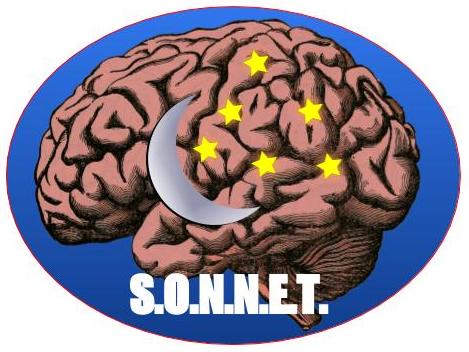SONNET
Sleep On Neural Networks in Brain Aging

Sleep has extraordinary effects on our brain and its ability to function. This study aims to investigate the relationship between sleep disruption and Alzheimer’s disease progression to better understand the role of sleep.
A rich literature associates alterations in sleep – including decreased slow-wave sleep (SWS) and rapid eye movement (REM) sleep, increased circadian rhythm variability, and decreased total sleep time – to the process of Alzheimer’s disease progression and brain aging. However, little data exists that allows us to translate the idea that sleep disruption promotes Alzheimer’s into interventional studies. In this research study we want to learn more about how sleep patterns affect cognition (memory, language, and attention), the build-up of the tau protein in the brain, and the health of brain networks.
Alzheimer’s disease dementia is among the largest public health challenges in the United States and across the world, representing a staggering burden for patients, families, and health care systems. Presently, an estimated 5.5 million adults suffer from Alzheimer’s disease (AD) in the U.S., including 1 in 10 adults above age 65, and nearly 1 in 3 over the age of 85. The World Health Organization estimates that over 47 million people worldwide suffer from AD, a number that is expected to nearly triple by 2050. Though a number of promising experimental therapeutics are in clinical testing, there are no currently available, disease-modifying therapies for AD. This underscores the need to identify potentially modifiable factors that can be targeted to delay cognitive decline and perhaps slow the accumulation of
amyloid-beta (Ab) and tau.
The goal of this study is to examine the relationships between tau pathology, cognitive performance, and neural network function with quantitative measurements of sleep in a population of older adults (50-90 years old). Tau pathology will be assessed by PET imaging using 18F-Flortaucipir (FTP PET). Neural network function will be assessed using functional MRI (fMRI). Cognitive performance will be measured with neuropsychological testing using different cognitive composites for unimpaired and impaired participants. Sleep will be measured using a watch-like wearable device (actigraphy) and using conventional EEG recordings (polysomnography). The overall focus of this study is to investigate the changes in participant’s sleep and to examine the aging of their brain across the timeline of 1-3 years. With this type of data we hope to learn more about the bidirectional relationship and the temporality of sleep and brain aging.
Principal Investigator

Project Contact

Nick Stevenson
Clinical Research Coordinator
nestevenson@mgh.harvard.edu
617.726.8906